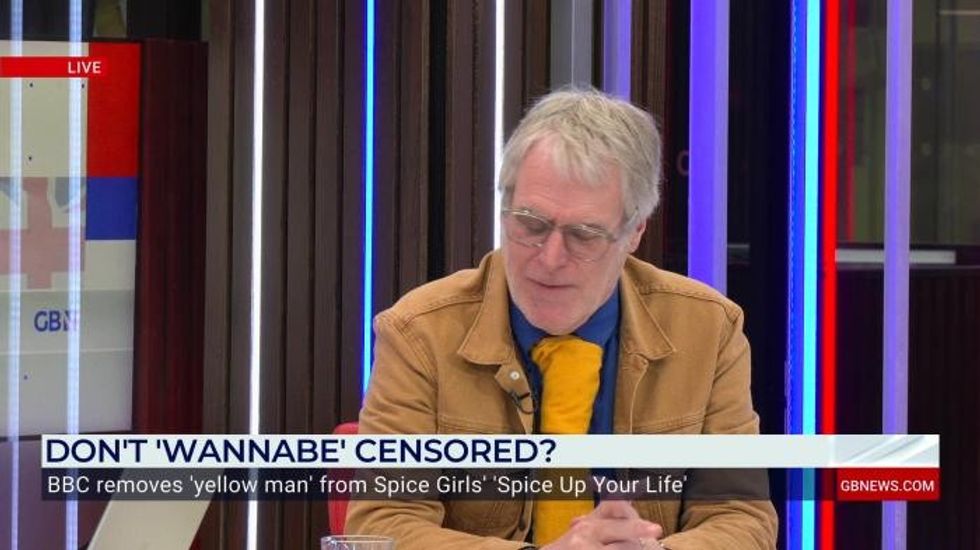The BBC has defended a controversial sequence in which presenter Bruce Parry suffocated a goat to death during his rebooted TV show Tribe.
The incident occurred in the second episode of the series when Parry was living with Angola’s Mucubal community.
Animal rights charity Peta has condemned the broadcaster for airing the footage, claiming Parry would face criminal charges if the act had taken place in Britain.
The BBC maintains the sequence accurately portrays an essential part of Mucubal life, where it is traditional for communities to ask visitors to slaughter a goat.
The broadcaster said excluding the footage would create an “inauthentic portrayal” of tribal life.
In the episode, Parry was gifted a goat by one of the tribe’s leaders as a welcome gesture. He was then instructed to kill the animal immediately, which initially left the presenter horrified.
“This is the most gruesome thing I have ever done,” Parry told cameras during the ordeal. He added: “I wasn’t given any time to consider it or anything. It’s like they held it and said you have to hold this now… so I did.”
After completing the act, Parry reflected: “It’s a very odd feeling, feeling the life force of an animal disappear in your own hands—not a feeling I’d necessarily want to have again.”
Peta UK’s President of Programmes Elisa Allen issued a strong rebuke, stating that Parry “would be in jail and facing criminal charges if his abominably cruel goat suffocation had occurred on British soil”.
Allen added that Peta would “see what action can be taken” as Parry “planned this, no doubt, from the UK, sharing responsibility with the BBC”.
LATEST DEVELOPMENTS:
Val Kilmer’s haunting final social media videos uncovered after Top Gun star’s death aged 65BBC Stacey and Joe viewers slam ‘colossal waste of money’ series and switch off ‘tone deaf’ showAlison Hammond faces continued criticism from ITV For The Love of Dogs fans as they call for axing
She described the incident as “selfish ratings ‘shock value'” where a “gentle being” spent “her final moments in abject terror”.
Allen dismissed Parry’s “excuse of cultural immersion” as “a failed attempt at washing his hands of an act of wanton cruelty to animals”.
She suggested Parry make “a sizeable donation to a goat sanctuary” as amends.
In response, a BBC spokesperson defended the sequence, explaining: “As the programme explains, the Mucubal believe that stabbing an animal is cruel and suffocation is a more respectful death.”
The broadcaster emphasised that the goat was consumed after being killed.
“The goat was eaten after its slaughter and to avoid including it in the programme would create an inauthentic portrayal of Mucubal life,” the spokesperson added.
The BBC maintained that the sequence accurately portrays an essential cultural practice.
In a recent interview with Radio Times, Parry reflected on the difficult task, saying: “Who am I to judge them?”
Parry first starred in the BBC Two documentary series from 2004 to 2007, living with various tribal groups to better understand their culture.
The adventurer was previously a Royal Marine, rising to the rank of lieutenant before becoming a presenter.
His Amazon With Bruce Parry won a Bafta in 2009 for best factual series.
After more than a decade away from screens, the 56-year-old filmmaker and indigenous rights activist returned for the new three-part series.
Speaking about the comeback, Parry said: “Living with people who experience the world in such profoundly different ways was eye-opening then, but today it feels vital.”
He added: “I believe we have so much to learn from those who still live in deep connection with the world around them.”
The new series has featured other controversial moments beyond the goat incident.
In the first episode, which aired on Sunday, Parry travelled to the Colombian Amazon to meet the Waimaha people.
Viewers witnessed him undergoing a ritual that involved snorting ground chili and ingesting a plant-based drink called emetic leaf-water.
This led to several minutes of footage showing Parry projectile vomiting into a river.
Despite the unsettling nature of some scenes, the programme received praise from viewers.
One social media user described it as a “fascinating” watch, while another hailed Parry as a “hero”.
